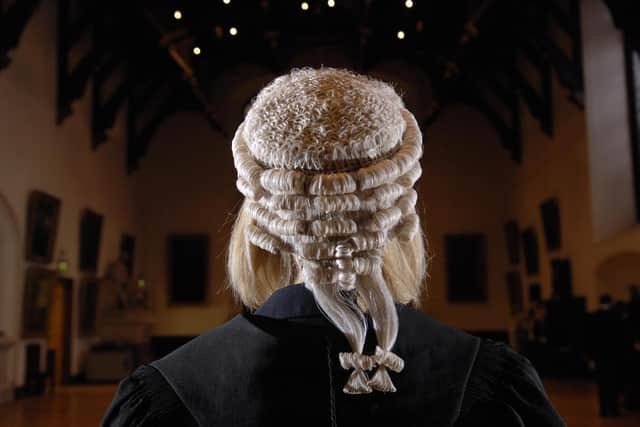MSPs split on controversial plans for juryless rape trials
Proposals that could see people accused of rape put on trial before a judge but with no jury have split a Holyrood committee.
With members of the Scottish Solicitors Bar Association already threatening to boycott such trials, MSPs on the Criminal Justice Committee agreed the proposal was “one of the most controversial provisions” in a Bill that aimed to make major changes to the justice system.
Advertisement
Hide AdAdvertisement
Hide AdThe four SNP MSPs on the committee gave their backing to the move, but made clear if the pilot project did go ahead it should be for no longer than 18 months.


But the two Conservative MSPs on the committee insisted such a scheme would represent a “fundamental departure” from the “long-established right” of an accused person to be put on trial in front of a jury of their peers.
Both Sharon Dowey and Russell Findlay insisted there was “insufficient evidence to justify what would amount to an experiment with people’s lives”.
The two Labour MSPs, Katy Clarke and Pauline McNeill, also made clear they did not support the proposals in their present form, saying if the pilot did go ahead, the Scottish Government should consider holding trials before a panel of judges, instead of one judge alone, and that there should also be a sunset clause to limit how long it could run for.
The committee was also split on another of the major provisions in the Victims, Witnesses and Justice Reform (Scotland) Bill – the proposal for a new sexual offences court.
While the four SNP MSPs on the committee backed this, the four opposition MSPs made clear they did not support the move.
While ministers proposed setting up a sexual offences court to deal with serious sexual offences, such as rape, the committee also voiced concerns about the prospect that the court could have to deal with murder charges if these were part of such a case.
Here the MSPs made clear they did “not think that a strong case has been made that the sexual offences court should be able to hear murder cases”, recommending to the Government that the legislation be changed “so that any case involving murder is tried in the High Court”.
Advertisement
Hide AdAdvertisement
Hide AdBut the committee did support the Bill’s abolition of the not-proven verdict in Scotland’s courts.
In their report, the MSPs said: “On the balance of evidence, having heard arguments for and against, we believe the not-proven verdict has had its day and should be abolished.”
They added that they “do not think it is satisfactory to have a verdict in a criminal trial which has no accepted legal definition” and went on to note that a not-proven verdict could have a “devastating impact” on victims and may also leave accused persons with a “lingering stigma”.
But while currently an accused person can be found guilty if eight members of a jury of 15 agree that is the correct verdict, the Bill would require at least eight members of a smaller jury of 12 people to support a conviction.
The MSPs did say they had not heard “convincing evidence in favour of the specific proposals”, noting that Scotland’s most senior prosecutor – Lord Advocate Dorothy Bain KC – had expressed “significant concerns” about such a change, saying it could make it “far more difficult” to convict people.
As a result, the committee recommended that if the Government did proceed with the abolition of the not-proven verdict, it “cannot support the proposed changes to jury size and majority because we have not heard compelling evidence to support this”.
Overall, they said the MSPs backed the general principles of the Bill, but said improvements should be made.
Speaking as the report was published, committee convener Audrey Nicoll said: “Although committee members did not support every proposal in this Bill, we all recognise it has the potential to improve the justice system for victims and witnesses and this is something we wholly support.”
Advertisement
Hide AdAdvertisement
Hide AdBut she added that for some MSPs the “final composition” of the Bill after it had been amended would “ultimately determine whether they are able to support it”.
Ms Nicoll added: “We recognise the strength of feeling on the proposed pilot of juryless trials and have been unable to reach a unified view on whether this pilot should proceed.”
But here she stated that if the pilot was to go ahead, “much improved data on conviction rates is needed” to help better understand its impact.
Justice Secretary Angela Constance said: “I am pleased the committee has agreed on the general principles of the Victims, Witnesses, and Justice Reform (Scotland) Bill which will put victims and witnesses at the heart of the justice system and ensure they are treated with compassion.
“I am keen to build consensus on the Bill’s proposals and note the backing and the comments made by the committee.
“I will continue to work with and listen to the voices of partners from across the justice system, as well as victims themselves, as we progress the Bill”.